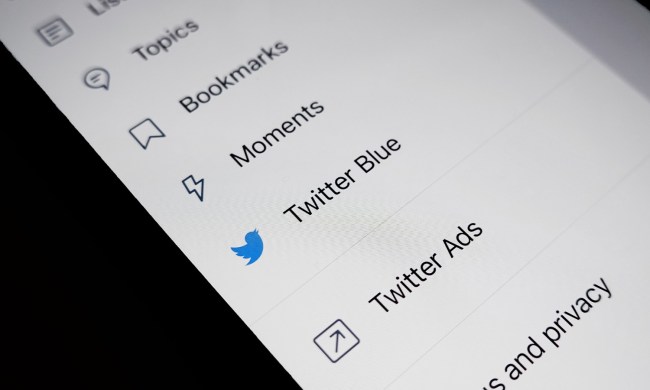President Donald Trump signed an executive order last week that’s aimed at regulating social media companies, claiming that Twitter, Facebook, and other online platforms are the enemies of free speech.
But Sen. Ron Wyden (D-OR) doesn’t buy it.
“[Trump] wants to force private businesses to play host to his lying,” Wyden told Digital Trends.
As the co-author of Section 230 of the Communications Decency Act — the specific law at which Trump’s executive order takes aim — Wyden knows better than most what the law is designed to protect. Wyden sees Trump’s order as a thinly veiled attempt to recast Section 230 as a troublesome loophole, rather than the pillar of online freedom that it is.
Wyden recently sat down for a Digital Trends interview to set the record straight.
It’s not about being ‘neutral’
Much of Trump’s order is predicated on the idea that social media platforms like Twitter and Facebook are required to be neutral, and that it’s problematic to let them selectively censor voices on one side of the political spectrum more than the other (which, for the record, studies have found isn’t happening).
“In a country that has long cherished the freedom of expression, we cannot allow a limited number of online platforms to handpick the speech that Americans may access and convey on the internet,” Trump said in his executive order. “This practice is fundamentally un-American and anti-democratic. When large, powerful social media companies censor opinions with which they disagree, they exercise a dangerous power. Twitter now selectively decides to place a warning label on certain tweets in a manner that clearly reflects political bias.”
But Wyden underscored that Section 230 has never been about neutrality:
“It is just preposterous that anyone would say that our law requires neutrality,” he said in an interview with Digital Trends. “You don’t see anything in the statute resembling a requirement for neutrality. The whole point was to say that there could be conservative websites and there could be progressive websites and we would basically let the marketplace decide what areas people might want to pay attention to. And this idea that somehow this requires neutrality is just completely false.”
In fact, the law itself doesn’t contain the word neutrality anywhere. And that’s by design. Mentioning neutrality “would have run contrary to our whole philosophy.” Wyden said. “Once you start talking about neutrality, then you’re starting down this path of police and government speech control. It just is a prescription for trouble. And that’s why we avoided it.”

What the law does state is that “no provider or user of an interactive computer service shall be treated as the publisher or speaker of any information provided by another information content provider.” In other words, platforms can’t be held liable for things that users post, and are free to moderate as they see fit.
“What we basically said,” Wyden explained, “is that you could moderate and curate some content and you could leave some up. That was the point of the law.”
Working the refs
Another misconception that Wyden wants to clear up is that Trump’s order changes the law in some way. That’s simply not how things work in the United States. Ultimately, the power to repeal or change Section 230 lies with Congress.
But while the executive order doesn’t affect the law, it does force companies like Facebook, Twitter, and others to engage in a legal battle to stop it from becoming a law in the future. And in Wyden’s eyes, that’s precisely the point.
“Donald Trump knows what he is proposing is illegal, but what he’s trying to do is what basketball players call working the refs,” Wyden told Digital Trends. “The idea is to put as much pressure on those companies to make them think he’s going to drag them here and push him there or do something which makes their life unbearable. And so he’s trying, as I would say, to ‘work the refs’ and try to force them to change their behavior.”
So while Section 230 isn’t going to disappear anytime soon, the mere threat of repealing it will likely have an impact on how social media companies operate.
I’ll just cut to the bottom line,” Wyden said. “What Donald Trump wants to do is he wants to force private businesses to play host to his lying.”
Want more news, reviews, guides, and features from Digital Trends? Follow us on Apple News, Google News, and Flipboard.



